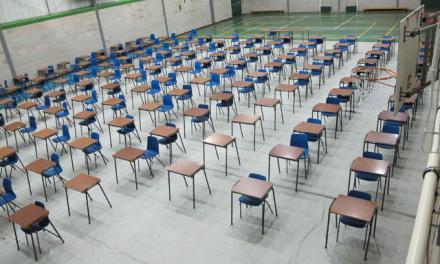Summer 2016 was a headline-grabber for all the wrong reasons as the lowest GCSE results in a decade were unveiled. Will next year’s results be easier to digest after the first new GCSE exams have been taken? Michael Gove claimed the changes would “address the pernicious damage caused by grade inflation and dumbing down”. Only time will tell.
The 10 key changes:
- Most exams will now be taken at the end of two-year courses rather than on completion of modules.
- Coursework and controlled assessment will disappear from most subjects apart from practical ones like drama and art. The new GCSE is far more exam-based; coursework is used only when needed to assess essential skills.
- Fewer ‘bite-sized’ questions and more essay-style questions will be set.
- Designed “to equip [young people] to win in the global race”, (Gove, again) content is more challenging across the board, with more substantial texts in English Literature and a raft of new topics in Maths, e.g. learning key formulae by heart and tackling ‘real-world problems’ including financial mathematics.
- Pupils must sit at least two science GCSEs; there’s no longer a single science option.
- A much-publicised development is the new grading system. Pupils in England who began courses last September in Maths, English and English Literature will be graded from 9-1 and not A*-G when results are published next summer, with 9 at the top end of the scale and roughly equivalent to an A* grade, and a grade four equivalent to a low- to mid-grade C. It’s hoped that the new grading will introduce greater differentiation between high-performing students. Pupils who fail to meet the minimum standards required to pass will receive a ‘U’. (In 2017, pupils will be awarded a mixture of old-style grades and the new numerical system. By 2019, everyone will be graded 1-9.)
- Foundation and higher-tier papers for pupils of varying abilities are being phased out. Exams can only be split into ‘foundation’ ‘and ‘higher’ tier if one exam paper doesn’t give all pupils the chance to demonstrate their abilities and knowledge.
- Schools won’t be ranked by the number of students gaining five or more A* to C grades. Instead, secondary schools will use the value-added Progress 8 measure which aims to capture progress made from the end of primary school to the end of secondary school. Pupils’ results are compared to the actual achievements of other pupils with the same prior attainment. Critics suggest the process could become hugely complicated. Nevertheless, Progress 8 should illustrate how well a school is performing with all pupils, not just the high-fliers.
- A drop in grades is predicted. Leading think-tank, the Education Policy Institute, (formerly CentreForum) has warned in its Education in England: Annual Report 2016 that the proportion of students who’ll achieve a ‘good pass’ could fall ‘very significantly’ – by around 23% – under the new numerical system.
- Resits will only be available each November in English and Maths.
What are your thoughts on these changes? Let us know in the comments below!









